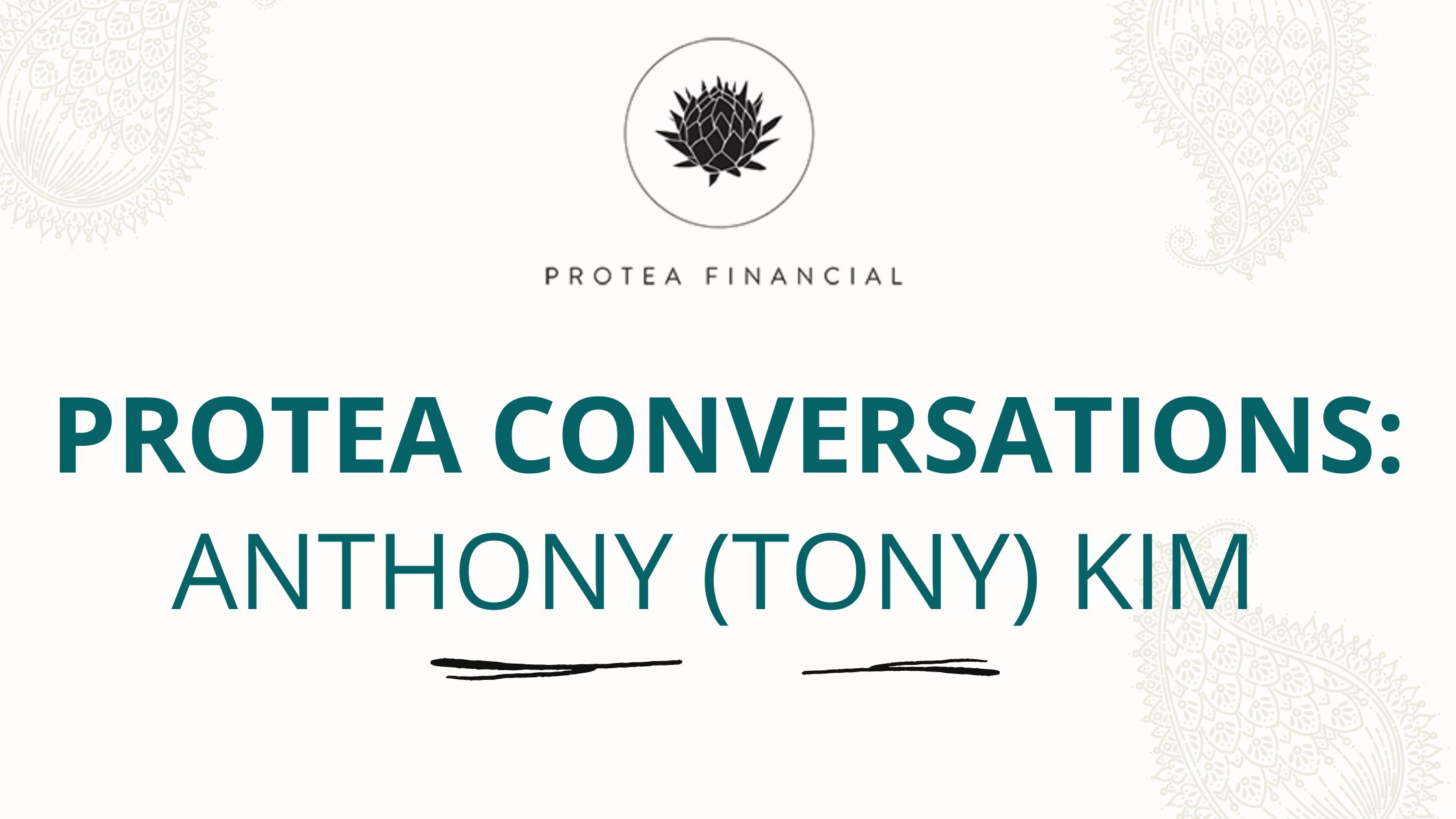Protea Financial was founded in 2014 to provide high-quality outsourced accounting at an affordable price. Given Protea’s flexible work environment, the Company especially appealed to accountants who wanted to re-enter the workforce after taking time off to start a family. This allowed Protea to attract extremely talented individuals who were previously overlooked. Protea strives to represent people from all backgrounds and provide an environment for them to grow and succeed in a setting that provides the flexibility and acceptance of who they are as people.
We selected the name Protea because is the national flower of South Africa and is a symbol of our connection. The Protea flower has become an ornamental flower because of this striking beauty and is included in arrangements and bouquets as a symbol of courage or daring to be better or a sign of positive transformation.
Protea Conversations in 2023 will focus on positive transformation and representation from all backgrounds. We are broadening our Conversations with the hope that these
In July 2023 we spent time with Anthony (Tony) Kim, a partner at Kim & Rosado, a Tax Law Firm.
Anthony specializes in assisting clients with Federal and state tax matters. He has worked over 26 years as an attorney with the Office of Chief Counsel, Internal Revenue Service, as a legal adviser and has litigated some of the most complex tax issues for the U.S. Treasury Department. During his government career, Tony supervised national industry programs covering sports, telecommunications, gaming, high technology, media & entertainment working closely with IRS technical Advisors to propose/draft published guidance. Beginning in 2009, Tony served as one the five primary counsel to assist the newly formed IRS global high wealth (GHW) industry group, a specialized unit focusing on the selection and audit of high-net-worth individuals. In this role, Tony assisted IRS revenue agents develop facts and legal positions in specialized audits focused on individuals with high total positive income. He has received numerous awards for his legal work over the course of his career including recognition from the United States Department of Justice for his special contribution in one major GHW case.
In addition to his government background, Tony worked in the private sector as an Executive Director of Tax Controversy and Risk Management Services with Ernst & Young, LLP (E&Y) from 2008-2009. In this role, he led the Pacific Northwest controversy practice for E&Y assisting clients to address a wide range of IRS compliance issues. Tony represented Fortune 500 companies and high net worth individuals assisting them to optimize tax planning opportunities and representing his clients before the IRS in audits.
Tony has served as an instructor at IRS training sessions and as an adjunct professor at Golden Gate University Graduate School of Taxation (19 years) and at St. Mary’s College (9 years). At St. Mary’s College, he managed the school’s community engagement program where he trained students to become qualified to serve as volunteers at local nonprofit organizations in order to provide tax assistance to low-income individuals/families.
Tony earned his political science degree from Amherst College, an MBA (specializing in accounting) from the College of William & Mary and a law degree from Brooklyn Law School. He is a member of the New York state bar, admitted to practice before the United States Tax Court, the United States District Court for the Eastern District of New York, and the United States Supreme Court. He is an avid tennis player winning the United States national men’s doubles championship at the 4.0 USTA rating level with his doubles partner. Tony has been married 30 years to Michelle. Michelle worked at Accenture, a consulting firm, as the global HR director before taking on the role of VP of strategic partnerships with TGR Foundation.
Tell us a little more about your journey as a 27-year veteran at the IRS and your decision to found a tax law firm?
In 1995, I started my legal career as a tax attorney at the Manhattan, New York post-of-duty working as a field attorney for the IRS. I was one of 12 attorneys who were sworn into Federal service that day. Back then, we had to wear suits and show up to work 5-days each week. Now, it seems no one wears suits to work and virtually everyone has a work-at-home arrangement. Within 2 years of my start date with the IRS, 11 of my class of new hires left Federal employment for jobs at law firms or accounting firms. The private sector knows that new government attorneys are very well trained in the first few years on the job.
New attorneys typically have multiple trials during their first year on the job, something which couldn’t happen at private law firms. So, IRS government attorneys are snatched up quickly by the private sector. I was assigned to a large captive insurance case fairly quickly after I started my government service with the iRS Office of Chief Counsel. So, I decided to finish my work on this significant case before leaving my government position to grab a much needed financial boost. But, the case took longer than I expected. And, I kept getting assigned interesting tax projects and promoted to higher level positions. After 12 years at IRS Chief Counsel, I finally left my job with the Federal government to lead the Pacific Northwest tax controversy practice for Ernst & Young.
I started my private sector job right at the cusp of a financial stress test for the U.S. economy in 2007. I struggled to build a book of business during this period at E&Y. So, I returned to IRS Chief Counsel and stayed until July 2022. The impetus for my second departure from Federal government service was the COVID-19 pandemic. When everyone worked from home, the work stream slowed. I’m not a person who does well with too much free time. In addition to the decrease in workload, I missed the collaborative atmosphere of working in the office with different attorneys, young and old. The lull brought on by the pandemic made me reassess what I wanted to accomplish in the last decade or so of my professional career.
So, at the urging of my best friend Nick Rosado, another former IRS attorney, I left government service (for a second and last time) to create my own challenge and join him to start a tax law firm together. Just to be clear, I did ask my wife if it was OK to take the risk of leaving a Federal salaried position for the unknown in the private sector. My wife has always had more confidence in me than I’ve had in myself. She assured me that everything would be great. As always, she was right. My partner Nick and I are having a great adventure tackling the opportunities of growing our law practice. And, we’re meeting so many wonderful clients who make us feel valued. In private practice, we’re not working on major cases or enforcing the tax code. But, it is so fulfilling to be able to make a difference for individuals and small businesses.

What has been the biggest challenge you have experienced in reaching your current success (personally and professionally)?
My biggest challenge has been to prioritize time for my family while keeping pace with the financial requirements of living in a high-cost urban city. A Federal government job provides incredible work-life balance. But, the salary from a government job presents a financial balancing act when you’re trying to raise kids and save for their college costs. So, I’ve taught part-time at two universities and written a tax research book to help supplement my government compensation. My situation isn’t unique. Many Federal attorneys who carry student loans have had to work multiple jobs to keep up with loan payments and living expenses. Still, the privilege of working as a government attorney made the juggling act worthwhile for me.
What are your short-term goals of your career and yourself?
My short-term goal in my new role as a partner of a new, small tax law firm is to establish personal relationships with my clients. When I was working for the government, I was privileged to advance the public good. But, there is no personal connection with a client. Now, at my law firm, I want to get to know my clients and make a positive impact to their lives or business. My wife and I have saved enough towards our retirement nest egg. We’ve paid for our kids’ college education. What means most to me right now is to feel and know that I’ve directly impacted my clients’ lives in a positive way.
What is the best piece of advice you have ever received that has helped you in your success?
When I started as a new attorney with the government, my mentor told me not to be afraid to ask questions. There’s the old saying, “There’s no such thing as a stupid question.” Yeah, that’s not true. Some questions should never be asked. No one will know that you’re not smart if you don’t say anything. So, the safe course is to keep quiet. My mentor told me that there are stupid questions that will come out. But, be brave enough to ask these questions. The consequence of not asking good and bad questions is that you may go down a path that wastes time for the entire organization. Be brave at work and risk looking like an idiot with an occasional stupid question. You will survive and learn. I’ve taken my mentor’s advice to heart and asked a lot of questions in my career – mostly, good questions I hope.
What is the piece of advice that you wished you had gotten when you were starting out?
Follow your calendar. Early in my career, my personal commitments took a second seat to work commitments. I had a Little League T-ball game for my son scheduled on my calendar. If a work matter came up, then the Little League game was scratched off my calendar. After nearly 30 years of working as a tax professional, I can honestly say that not one work matter would have suffered terribly or irreparably if I had moved the work item instead of my personal commitments to my family. Several years ago, I committed to my calendar. If I set a family matter or a personal outing with my friends, the event was set in stone. Work did not move that schedule event. Work/life balance works if you commit to your calendar. I wish I had learned earlier that once an event (especially a personal event) is scheduled on the calendar, it must be followed. I’d have fewer regrets.
What advice would you give to others to help them become better leaders?
I’ve always scoffed at organizational mission statements which are so broad and vague. But, for leaders, I believe that a personal mission statement would make them far better in their role. The mission of a good leader should be to put their employees first. Enhance learning opportunities for employees. Improve workers’ career options by actively looking for developmental positions or projects. Provide greater flexibility to employees to balance their work/life. Put the interests of employees ahead of leaders. Bad leaders highlight their accomplishments.
Good leaders spotlight their employees’ successes. Resist the tug of power because you as the leader hold a supervisory position. Don’t be officious or imperious. If someone must work on the weekend on a big project, the leader should show by example that he/she will work beside the employees in the office. Lead by example. When I was an executive, I thought that a good leader enforced personnel guidelines and focused on organizational targets. That was me following the company’s goals. I was not a good leader. A good leader should focus on the welfare of his/her individual employees. The organization’s goals are far more likely to be reached and perhaps even exceeded when the employees are put first. And good leaders should do just that.

Can you share something interesting about yourself that will provide insight into who you are outside of the professional space?
I am a reluctant athlete. When I first arrived at age 6 from South Korea, I didn’t speak English and couldn’t communicate with any of the other kids in school. So, I was involved in a lot of fights because I was different. That’s the way of the world, especially in the gritty parts of New York where I grew up. I took up sports so I could feel a sense of community and safety. I started with Little League baseball. Then, I played Pop Warner football. Having run away from so many people who wanted to beat me up when I was in grade school, I became a very nimble and quick runner. Fear is a great motivator. Eventually, I played football in high school and college. At every level of football competition, I was undersized at my position as a defensive back. But, all of my coaches focused on the level of a person’s effort, not size. I owe my success in both my personal relationships and in my profession to the lessons that I learned from my coaches and teammates at every level of sports competition.
As a thank you to our interview and Protea’s commitment to more diverse and inclusive leaders, Protea will donate to Canine Companions (https://canine.org/). Canine Companions is leading the service dog industry so their clients and their dogs can live with greater independence. They provide service dogs to adults, children and veterans with disabilities and facility dogs to professionals working in healthcare, criminal justice and educational settings. Since our founding in 1975, our dogs and all follow-up services are provided at no cost to our clients.
Independence shouldn’t be limited to those who look or live a certain way. Disability reaches all races, classes and backgrounds, and Canine Companions will too. Clients come to Canine Companions because of our reputation, the quality of our dogs, the experience of our training staff and the desire to lead life with greater independence. We are committed to providing services to all qualified clients.
Become part of the ever-expanding Protea network. Contact us now and let’s work together to share our passions and help each other grow!
Frequently Asked Questions
1. What are the advantages of outsourcing accounting for small businesses?
Outsourcing accounting can save small businesses time and money by reducing overhead and allowing access to experienced accountants without needing to hire full-time staff. Outsourced teams provide expertise in tax preparation, payroll, and financial reporting, which can improve compliance and boost overall business efficiency. Plus, outsourced accounting often offers scalable solutions that can grow with a business.
2. How can Protea Financial support businesses looking for flexible accounting solutions?
Protea Financial specializes in customizable outsourced accounting services, offering flexibility to meet unique client needs. Whether a business requires periodic bookkeeping, tax assistance, or comprehensive financial oversight, Protea’s model adapts to match workload changes. This flexibility helps businesses focus on growth without being bogged down by accounting tasks.
3. How does Protea Financial promote diversity in the accounting profession?
Protea Financial emphasizes an inclusive work environment, attracting top accounting talent from diverse backgrounds. Their approach encourages people from various demographics to join or re-enter the workforce, enhancing diverse representation in the accounting field. This commitment to diversity not only enriches the team’s perspectives but also promotes innovation in financial solutions.
4. Why is the Protea flower significant to Protea Financial’s brand identity?
The Protea flower, known for its resilience and beauty, symbolizes courage and transformation, values central to Protea Financial’s mission. Originating from South Africa, this flower represents adaptability and growth—qualities that Protea Financial embodies as it supports clients through complex financial challenges with a commitment to positive transformation.
5. What are some tax strategies for high-net-worth individuals?
High-net-worth individuals can benefit from tax planning strategies like tax-loss harvesting, charitable giving, and investing in tax-advantaged accounts. These strategies help reduce taxable income and maximize wealth preservation. Consulting with tax experts, such as those at Protea Financial, can uncover personalized strategies based on income, assets, and financial goals.

6. How does Protea Financial’s flexible work environment benefit clients?
Protea’s flexible work environment attracts highly skilled accountants who value work-life balance, which enhances employee satisfaction and retention. For clients, this translates into reliable service from motivated professionals who are dedicated to delivering quality accounting and tax assistance, fostering a relationship of trust and continuity.
7. What should businesses consider when choosing an outsourced accounting provider?
Businesses should look for experience, scalability, and communication transparency in an outsourced accounting provider. A firm like Protea Financial, with a track record in diverse sectors and a commitment to client-specific solutions, ensures that clients receive personalized attention that aligns with their growth and regulatory needs.
8. How can businesses benefit from specialized tax law expertise?
Specialized tax law expertise can help businesses navigate complex tax regulations, reduce liabilities, and avoid compliance risks. With Protea Financial’s team of seasoned tax experts, businesses can gain insight into tax-saving opportunities and receive support during audits, enhancing both legal compliance and financial planning.
9. How has Protea Financial evolved since its founding in 2014?
Since 2014, Protea Financial has expanded its outsourced accounting services to cater to a wide range of clients, from small businesses to larger enterprises. They continue to build on their founding principles of flexibility and diversity, focusing on innovative solutions and representation across all backgrounds in the accounting field.
10. What role does diversity play in client service at Protea Financial?
Diversity at Protea Financial fosters a collaborative environment where unique perspectives lead to tailored financial solutions. This diversity allows Protea to better understand and meet the varied needs of its clients, supporting a culture of inclusion that extends to client interactions and enhances service quality.



